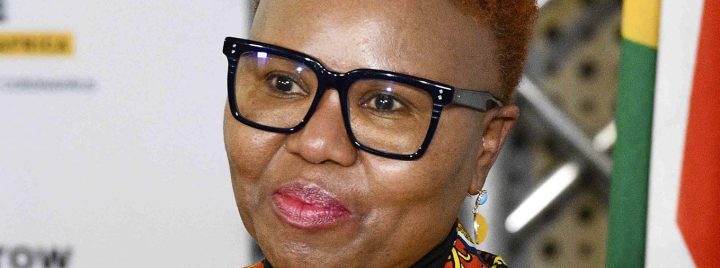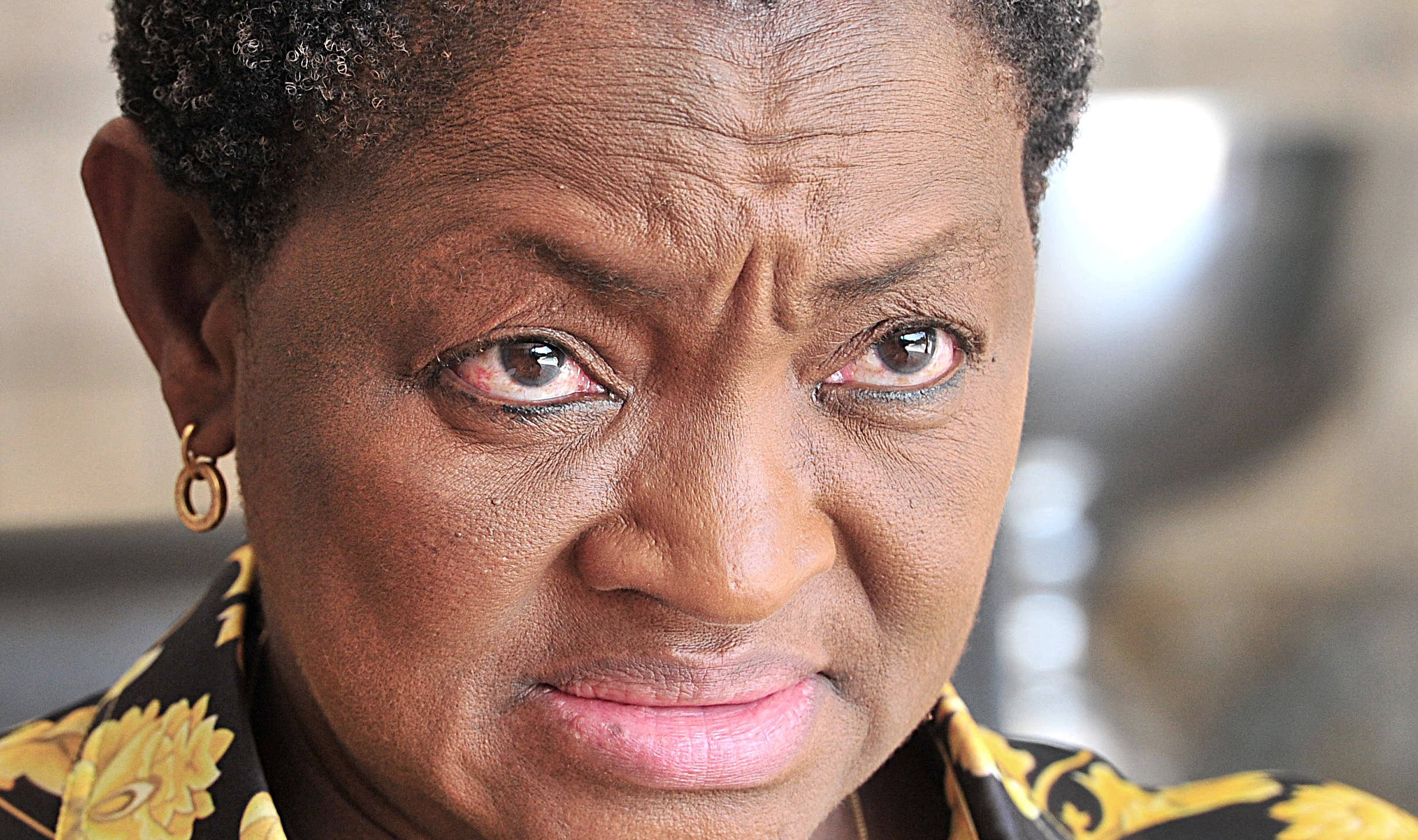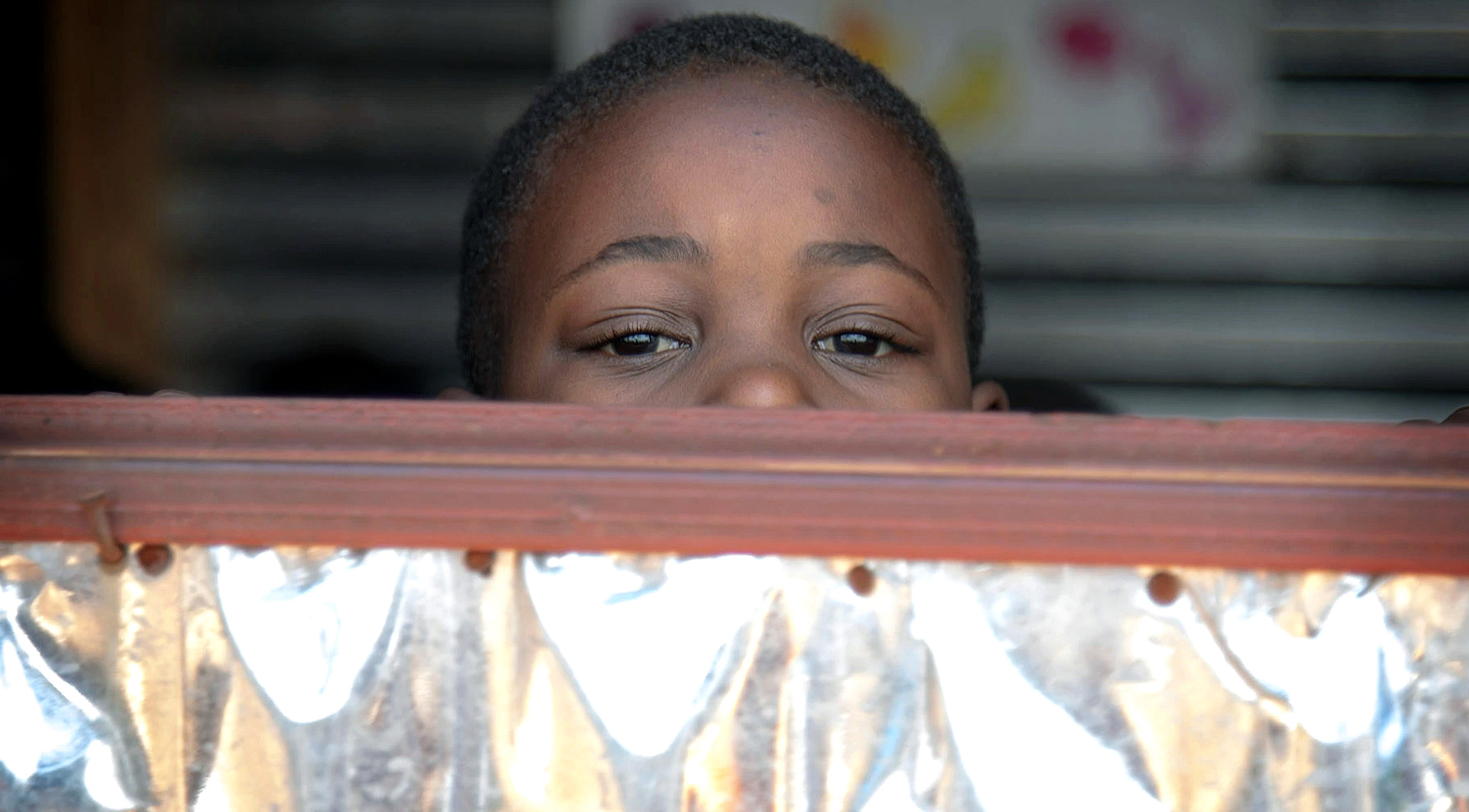CHILD HUNGER OP-ED
Court may end ducking and diving by Lindiwe Zulu on ECD subsidies

After more than two years of abject failure by Social Development Minister Lindiwe Zulu to pay subsidies to early childhood development centres, the Supreme Court of Appeal will clarify her obligations this month.
On 20 May 2022, the Supreme Court of Appeal will hear an appeal brought by the minister of social development and the MECs of social development in all provinces, except the Western Cape, against a judgment by the North Gauteng High Court forcing them to pay subsidies owed to vulnerable preschool children in the SA Childcare case of October 2020.
The subsidies had been earmarked long before Covid-19, for particularly vulnerable children for their food and care, based on household income. The meals they received at early childhood development (ECD) centres were critical for their nutrition since their families were unable to provide enough food at home.
Building on a solid foundation of neglect of the ECD sector, Lindiwe Zulu, the current minister of social development, closed ECD centres upon the outbreak of the Covid-19 pandemic, and kept them unlawfully closed, long after the minister of basic education had reopened schools.
Despite desperate pleas from the ECD sector and civil society, it became alarmingly apparent that she had no intention of allowing ECD centres to operate until Covid-19 had dissipated. An explanation for this unfathomable decision was revealed when it came to light that she and her MECs were using the closure to withhold early childhood development grant subsidies, just when children and ECD workers were suffering an acute food crisis. She and her MECs alleged in their defence that the children were “not hungry” and that the applicants’ legal team were “sensationalist and ill-informed”.
It took a court case to allow ECDs to reopen. Even with that court order as well as a punitive costs order, the continued withholding of the subsidies meant that ECD centres didn’t have the resources to open. Without the subsidies, the centres couldn’t feed and care for children, or pay the ECD workers. By the time the SA Childcare subsidies case was heard, the ECD sector was staggering under the weight of nearly seven months of closure. Children were hungry and neglected and ECD workers were desperate.
Read in Daily Maverick: “First early childhood development census reveals underfunded and underqualified sector”
Incidentally, Zulu instituted a series of ultimately pointless “workstreams” to “guide” the sector towards reopening. Far from assisting the sector, these so-called workstreams served absolutely no purpose but to delay the opening and operations of ECD centres. Just as former social development minister Bathabile Dlamini did in the infamous social grants case, Zulu tried to shift the blame for the reopening fiasco onto the workstreams, even using their existence as proof of performance of her obligations.
Those who followed Dlamini’s tale of woe will recall that she too pinned the blame for irregular processes on “workstreams” which she denied having anything to do with. This ultimately led to her conviction for perjury when it was revealed that she had lied about this, and had in fact overseen the workstreams herself.
Judgment was finally handed down in the North Gauteng High Court in the subsidies case in October 2020. Judge Janse van Nieuwenhuizen declared that the minister and her MECs had failed in their constitutional duties and had to pay 100% subsidies to expectant ECD centres, whether they were operational or not, and slapped another punitive costs order on them.

Those who followed Bathabile Dlamini’s tale of woe will recall that she too pinned the blame for irregular processes on ‘workstreams’ which she denied having anything to do with. This ultimately led to her conviction for perjury when it was revealed that she had lied about this, and had in fact overseen the workstreams herself. (Photo: Gallo Images / City Press / Leon Sadiki)
The minister and the MECs sought leave to appeal that judgment, which tragically stayed the court order. This move should come as no surprise. When faced with an adverse order, no matter how spurious the arguments or desperate the plight of the litigants, the state has a tendency to institute appeals as a matter of course. There has been ample opportunity for Zulu and others to familiarise themselves with every legal trick in the book, watching a parade of miscreants and liars using our court processes expediently and without moral qualms to kick the proverbial can down the road.
The responsibility for ECD shifted to the Department of Basic Education on 1 April 2022, very conveniently for Zulu. In fact, she now uses this function shift to argue that there would be no point in hearing the current matter because she is no longer in a position to withhold ECD subsidies in the future. This is a curious argument, and one that does not paint her in a forgiving light.
As a result of these legal machinations, the sector was decimated. After more than two years of abject failure by Zulu to tend to the needs of South Africa’s youngest children, the Supreme Court of Appeal will clarify her obligations on 20 May 2022.
The financial year in which the subsidies were due is long gone, but the minister’s and MECs’ obligations are very much alive. The issue to be finalised after all this time is whether they have a constitutional duty and statutory obligations to ensure that the subsidies are paid, and if so what the consequences of that breach are.
The collapse of early childhood development is a constitutional crisis – urgent action is needed now
The minister has conceded that she bears a duty to the constitutional rights of children to basic nutrition and social services, but baulks at meeting that responsibility, her counsel quibbling that “the issue is to the extent of that duty, in other words what is expected from the minister in order to ensure that subsidies are paid to ECDs”. For an official in high public office to accept that she is constitutionally obliged to uphold children’s rights, but to deny that she is obliged to go to lengths to discharge that duty, is an astonishing assertion.
Zulu and the MECs are now attempting to persuade the Supreme Court of Appeal that the matter should not be heard, because circumstances have changed and the matter is no longer of any practical relevance. This assertion is a manipulative attempt to frame their conduct in the context of the extraordinary measures taken to combat Covid-19. The minister has repeatedly tried to convince the court that it was excusable to deprive children of food because they were confined to their homes due to the Covid-19 regulations.
The court was not convinced by her evidence that she had matched the ECD meals with food parcels, as it showed that the food parcels did not actually reach these children and were in any event pitiful compared with the meals provided at ECD centres.
Relevance and public interest
None of these Covid-19-specific circumstances deprives the present matter of practical relevance.
The fact that the regulations confining children to their homes have lapsed has absolutely nothing to do with the withholding of the subsidies, which were engineered and masked by Covid-19 regulations, but were in truth a massive failure to meet the state’s obligations in terms of the Division of Revenue Act. That act is a piece of legislation that is totally disconnected from the National State of Disaster. These obligations existed before Covid-19 and will continue to do so. For Zulu to escape reckoning simply due to the passage of time would be a travesty.

Building on a solid foundation of neglect of the early childhood development sector, Lindiwe Zulu closed ECD centres upon the outbreak of the Covid-19 pandemic and kept them unlawfully closed, long after the minister of basic education had reopened schools. (Photo: Gallo Images / Luba Lesolle)
Far from being irrelevant, it is also a matter of urgent public interest to have the matter heard in open court, as the minister and the MECs made shocking admissions throughout the course of litigation.
In their own papers before the court their concessions included:
- Numerous admissions of irregular payments in contravention of the Division of Revenue Act, including repurposing the subsidies for the purchase of personal protective equipment;
- The minister’s bald assertion that she has the authority to use legislation to meet her administrative ends as she sees fit, that the court cannot “tie her hands” should she wish to do so, and that if she has used legislation for ulterior motives, then “so be it”;
- That the MECs chose to withhold the subsidies but that they are entitled to do so as these are “executive decisions”. To clarify, the subsidies in question are of such a nature that they can only be used for their very specific purpose, and cannot be reduced, repurposed, withheld or otherwise tampered with by the MECs or any other public official (they are allocated in terms of the specific-purpose Early Childhood Development Conditional Grant); and
- That the subsidies would be paid in full, and even back-paid, once centres had opened, only to backtrack on this promise in the next round of arguments, confining that undertaking to centres that had managed to open already, usually due to private funding. This about-face hastened the demise of the ECD centres that need the subsidies the most, as they serve the poorest of children who are now left high and dry without the subsidies they so desperately need.
To date, the Department of Social Development has failed to produce one shred of evidence of payment of these subsidies and instead attempts to argue that the case is “moot”.
The heartbreaking testimony of the eight applicants in the SA Childcare case also stands uncontested. In fact, the disregard for the evidence put before the court prompted Judge Van Nieuwenhuizen to remark that the MECs, in dealing with people at grassroots level – the very people the state is constitutionally obliged to serve – had displayed “absolute no-care arrogance” and that their remarks in opposition were particularly hurtful and demeaning of the plight of young, vulnerable and hungry children.
We look forward to a thorough exploration in the appeal of the accountability of the minister to execute her constitutional mandate to protect the poorest children. Far from being of no practical relevance, the applicants need finality on the payment of the subsidies and Zulu must be held accountable for her failure to do so.
There is also the matter of where the money went. If it didn’t reach the intended recipients, where exactly is it now?

Given the astounding concessions in the case against Lindiwe Zulu for her part in a different social grants crisis, there is a real possibility that she will have to face a reckoning once and for all for her manifold failures of vulnerable children during the Covid-19 crisis. (Photo: Leila Dougan)
The Constitutional Court recently had occasion to consider the accountability of the previous minister of social development in the Black Sash case against Dlamini for her part in the social grants disaster. The court held the minister personally liable for her brazen conduct and was singularly unpersuaded by arguments that the case was moot. The ConCourt took the view that even though Dlamini’s duties no longer applied by the time her case was heard, her violations of rights remained a live issue. The same approach applies in this appeal.
Given the astounding concessions in the case against Zulu for her part in a different social grants crisis, there is a real possibility that she will have to face a reckoning once and for all for her manifold failures of vulnerable children during the Covid-19 crisis. DM/MC
Elisabeth van Wyk is employed in the constitutional and administrative law department of the firm of Van Wyk and Associates and heads the firm’s pro bono matters. She is a director of the non-profit Lawyers for Early Childhood Development.
With thanks to the applicants’ legal team, Advocate Anne-Lize Lourens, Elisabeth van Wyk and Antonie van Wyk of Van Wyk and Associates, and SA Childcare (Pty) Ltd, the Centre for Early Childhood Development and all the applicants in the case.
[hearken id=”daily-maverick/9472″]



















 Become an Insider
Become an Insider
Comments - Please login in order to comment.